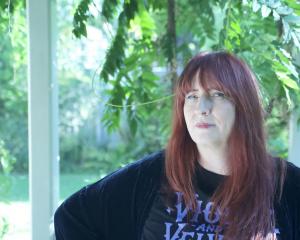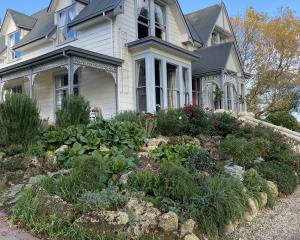Swimming in this maelstrom would be madness.
However, we island dwellers have been land-bound for almost two months now and miss the smell of the ocean and the sound of the waves so much that, in defiance of the conditions, we put on our togs and clamber down the cliff path to go for a dip.
Lurching in the gale, weeping rust, is the River Princess, run aground 10 years ago, the tonnes of sand in her hold pinning her to the bottom.
"Let's swim out!" exclaims the economist. I pretend not to hear his lunatic suggestion, which is whipped away by the tempest.
A metre up the beach, as the sea continues to devour the foreshore, waves crash down on the body of a dead cow with one horn dug into the coarse yellow sand and one eye balefully regarding the heavens.
"It's like removing a 12-storey building," say the salvage experts of the Princess. Battered by the unkind sea, she shivers and creaks. Apparently, her massive metal carcass is causing a deadly current, lethal to local fishermen, so she must be removed.
A tender stoush is raging. "We'll do it for free," says the shipping line that used to own her. By "free" they mean they won't pay the Goan government for the privilege of collecting their own ship. In true corruption style, it looks like the highest bid (US$30 million from a rival company) will win.
Snakes, malaria, mossies and tourist murderers all cast a pall, but the biggest killer on the beaches of Goa is the Arabian Sea, or drowning.
The lifeguards, terrified of another European death on their watch - the English papers make such a fuss - follow us up and down the coast nervously clutching their red Baywatch floaters as we frolic in the waves.
The economist (who started surfing when he was 14) is personally affronted.
"This is nothing," he harrumphs as the storm-sea growls and thumps.
"They should see Saint Kilda in a sou'wester."













